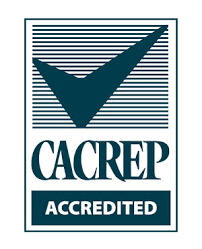Rehabilitation Counseling
| About This Program | |
|---|---|
|
Admissions Contact
Kristen Tantillo Are you an International Student? |
|
Curriculum and Delivery
|
|
Start Dates and Duration
|
|
| Graduate Success and Careers | |
| Paying for Your Education | |
|
Upcoming Events
Master's Degrees in Counseling Information Session Tips and Pointers for Applying to Graduate School Graduate Spring Open House Financial Aid Information Session |
|
Empower People With Disabilities.
The MEd in Rehabilitation Counseling at Springfield College is one of the oldest rehabilitation programs in the country. It aims to develop and hone students’ counseling skills through a combination of coursework and professionally supervised clinical experiences. Our graduates have become advocates and change agents who empower people with disabilities to lead productive and fulfilling lives.
The field of rehabilitation counseling is focused on increasing quality of life for people with disabilities by assisting them in achieving their personal, social, career, and independent living goals through the counseling process. Rehabilitation counselors are employed in a wide range of settings including: state vocational rehabilitation agencies, colleges and universities, K-12 schools, the Department of Veterans Affairs, insurance companies, private practice, and non-profit and other community organizations that support people with congenital and acquired disabilities in reaching their goals.
As noted by the Commission on Rehabilitation Counselor Certification (CRCC; 2020), “Rehabilitation counselors are the only professional counselors educated and trained at the graduate level specifically to serve individuals with disabilities. This includes an extensive knowledge of all aspects of disability as well as an in-depth understanding of critical considerations such as assistive technology and employment law. Unlike other counseling professionals, rehabilitation counselors are uniquely qualified to help individuals with disabilities acclimate into the workplace, and to help employers make a workplace more receptive to individuals with disabilities.”
Rehabilitation Counseling: The Best Kept Secret in the Counseling Field
- Holistic focus: consider individuals' biological, psychological, and social factors that impact their ability to function in society
- Goal is to help clients grow through self-advocacy; psychological, social, behavioral, and vocational interventions
- Serve individuals who have a variety of disabilities, including those with mental, physical, developmental, cognitive, and emotional disabilities
- One of the highest-paid counseling professionals
How to Apply:
Admissions Requirements
- Complete the online application: Once your application form is processed you will receive an email with your application portal login credentials and instructions for submitting supplemental materials as listed below.
- Essay: In two to three double-spaced pages, please describe significant life experiences that have contributed to your interest in your field, your understanding of this field, your occupational objectives, and why you have chosen Springfield College.
- Resume: Please include any college activities, out-of-school leadership experiences, work history, and community involvement to support your interest in or qualifications for graduate study.
- Two letters of recommendation: Two letters of recommendation from a faculty member or direct supervisor: Recommenders will receive an email when you submit your application and will be able to upload your letter to your application.
- Interview: This program requires an interview.
- Transcripts: An official transcript from each college/university you have attended is required. In order to be considered official, transcripts must be received directly from the original source, by email to graduate@springfield.edu or mailed to the college address:
Springfield College
Office of Graduate Admissions
263 Alden Street
Springfield, MA 01109
International Applicants
- $100 non-refundable International Application fee
In addition to the above admissions requirements, all international applicants from non-English-speaking countries are required to submit:
- Proof of English language proficiency by way of the TOEFL or IELTS: Other tests may be accepted on a case-by-case basis. Please refer to our language requirements for more information on acceptable tests, minimum scores, exemptions, and conditional acceptance. If your undergraduate degree was earned in the United States and you successfully completed college-level English, we will consider English language proficiency met.
- Please note: Transcripts must be in English. If the transcript is not in English you will be required to submit a professional credential evaluation completed by any member of the National Association of Credential Evaluation Services (NACES). For this we recommend SpanTran, with its customized portal for Springfield College applicants. World Education Services or Josef Silny & Associates, Inc. are also recommended for your credential evaluations.
The Office of International Admissions can assist you with questions you may have about enrolling at Springfield College as an international student by emailing intladmissions@springfieldcollege.edu.
Application Deadlines
Domestic Students:
Applications are reviewed on a rolling basis as space is available.
International Students:
Fall Start:
- Application and Supporting Materials Deadline: May 1
Spring Start:
- Application and Supporting Materials Deadline: October 1
Summer Start:
- Application and Supporting Materials Deadline: February 1

